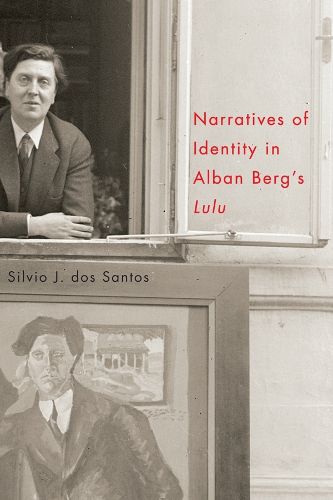Readings Newsletter
Become a Readings Member to make your shopping experience even easier.
Sign in or sign up for free!
You’re not far away from qualifying for FREE standard shipping within Australia
You’ve qualified for FREE standard shipping within Australia
The cart is loading…






Exploring the crossroads between autobiographical narrative and musical composition, this book examines Berg’s transformation of Frank Wedekind’s Erdgeist and Die Buchse der Pandora – the plays used in the formationof the libretto for Lulu – according to notions of gender identity, social customs, and the aesthetics of modernity in the Vienna of the 1920s and 1930s. While Berg modernized several aspects of the plays and incorporatedserial techniques of composition from Arnold Schoenberg, he never let go of the idealistic Wagnerian perspectives of his youth. In fact, he went as far as reconfiguring aspects of Richard Wagner’s life as an ideal identity to beplayed out in the compositional process. In composing the opera, Berg also reflected on the most important cultural figures in fin-de-siecle Vienna that affected his worldview, including Karl Kraus, Emil Lucka, Otto Weininger, andothers.
Combining analysis of Berg’s correspondence, numerous sketches for Lulu, and the finished work with interpretive models drawn from cultural studies and philosophy, this book elucidates the ways in which Berg grappled at the end of his life with his self-image as an incorrigible romantic, and explains aspects of his musical language that have been considered strange or anomalous in Berg scholarship.
Silvio J. dos Santos isassistant professor of musicology at the University of Florida.
$9.00 standard shipping within Australia
FREE standard shipping within Australia for orders over $100.00
Express & International shipping calculated at checkout
Exploring the crossroads between autobiographical narrative and musical composition, this book examines Berg’s transformation of Frank Wedekind’s Erdgeist and Die Buchse der Pandora – the plays used in the formationof the libretto for Lulu – according to notions of gender identity, social customs, and the aesthetics of modernity in the Vienna of the 1920s and 1930s. While Berg modernized several aspects of the plays and incorporatedserial techniques of composition from Arnold Schoenberg, he never let go of the idealistic Wagnerian perspectives of his youth. In fact, he went as far as reconfiguring aspects of Richard Wagner’s life as an ideal identity to beplayed out in the compositional process. In composing the opera, Berg also reflected on the most important cultural figures in fin-de-siecle Vienna that affected his worldview, including Karl Kraus, Emil Lucka, Otto Weininger, andothers.
Combining analysis of Berg’s correspondence, numerous sketches for Lulu, and the finished work with interpretive models drawn from cultural studies and philosophy, this book elucidates the ways in which Berg grappled at the end of his life with his self-image as an incorrigible romantic, and explains aspects of his musical language that have been considered strange or anomalous in Berg scholarship.
Silvio J. dos Santos isassistant professor of musicology at the University of Florida.